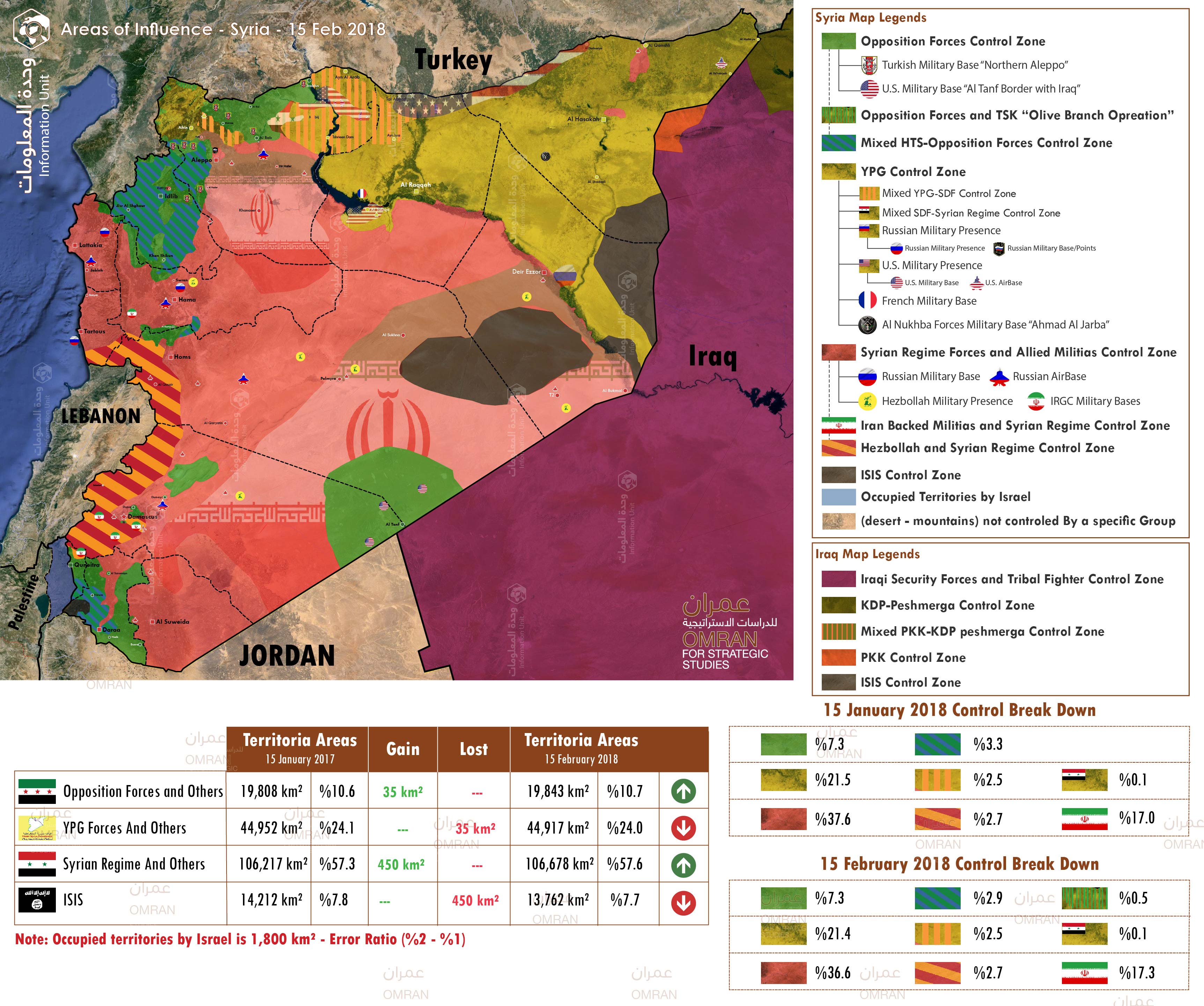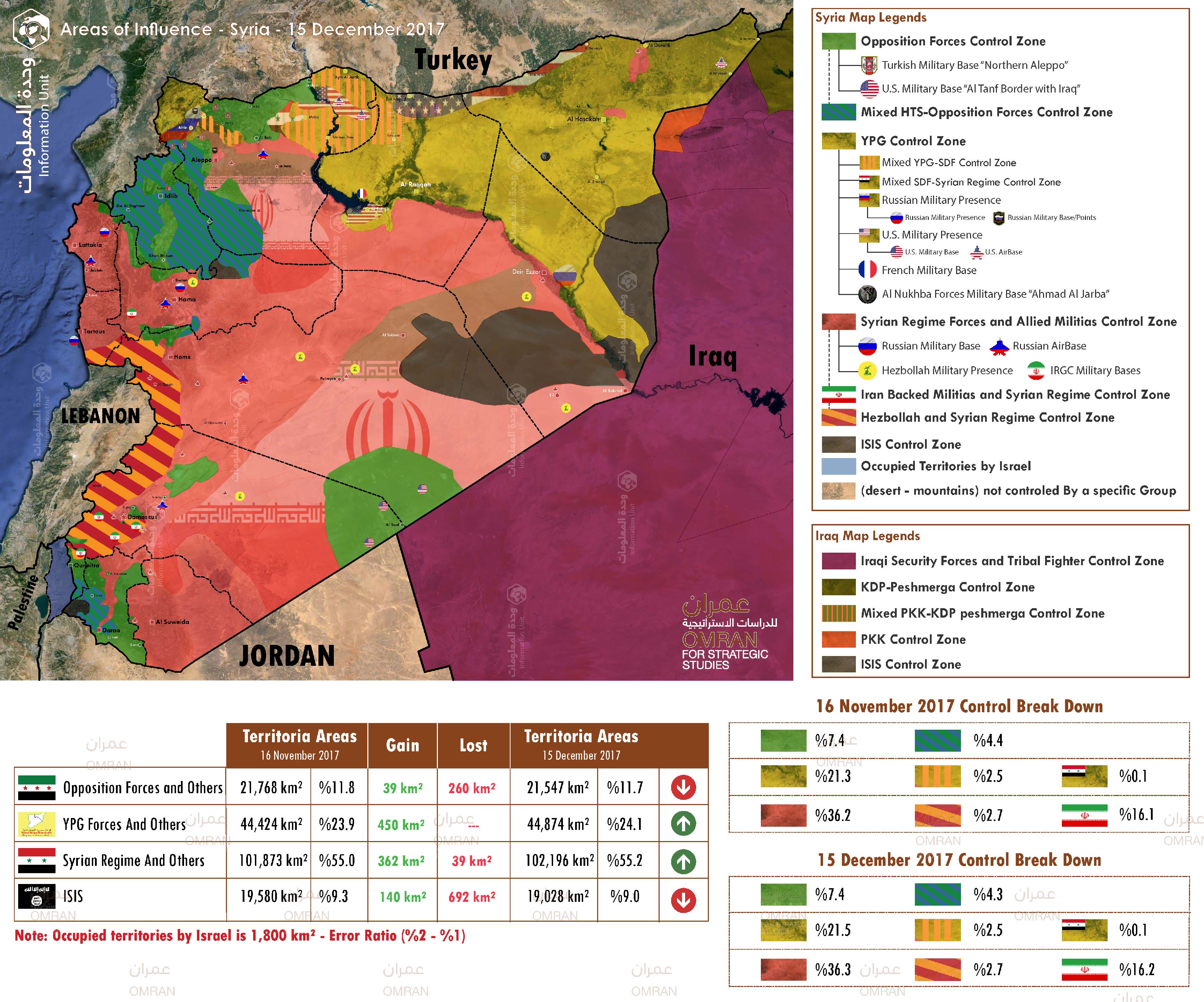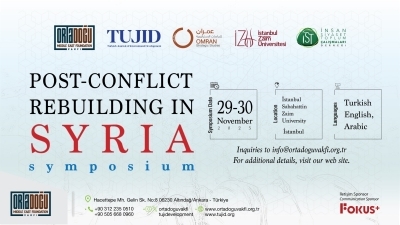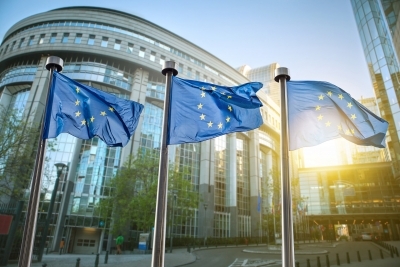Papers
The Military Expert Nawar Oliver talking about the Syrian regime cut up Ghouta into three zones
Nawar Oliver at Omran for strategic Studies, said in his last interview with AFP, "The Syrian regime cut up Ghouta into three zones, to comfortably work on securing three different agreements, and the Syrian regime is justifying this brutal campaign in order to secure the capital, which is regularly battered by rockets and mortars fired from the opposition territory as the regime claim.
Published in AFP Agency, 15 March.2018,
Map of Control and Influence in Syria February 16, 2018
Map of Control and Influence in Syria:
- Turkish Armed Forces (TAF) and the Free Syrian Army (FSA) captured several locations in the western region of Afrin from the YPG/YPJ. Separately, reports emerged claiming that the TAF and the FSA had deployed additional troops and equipment west of the Jandaris district indicating an upcoming offensive.
Pro-YPG sources said that Kurdish forces had repelled Turkish attacks in the districts of Rajo and Bulbul, and claimed that more than 20 Turkish-backed fighters were reportedly killed there.
February 5: A massive Kurdish military convoy entered the Afrin region to support the YPG in its fight against the Turks. As a result, many issues were raised:
- The number of vehicles that left Manbij was 36, but 41 entered Afrin, meaning five extra vehicles joined the convoy from areas controlled by pro-Iran forces.
- After the convoy entered Afrin from a checkpoint in Nubl and Zahraa, areas controlled by pro-Iran forces, multiple Iranian weapons were spotted in the possession of Kurdish forces. Below is a full list of these weapons.
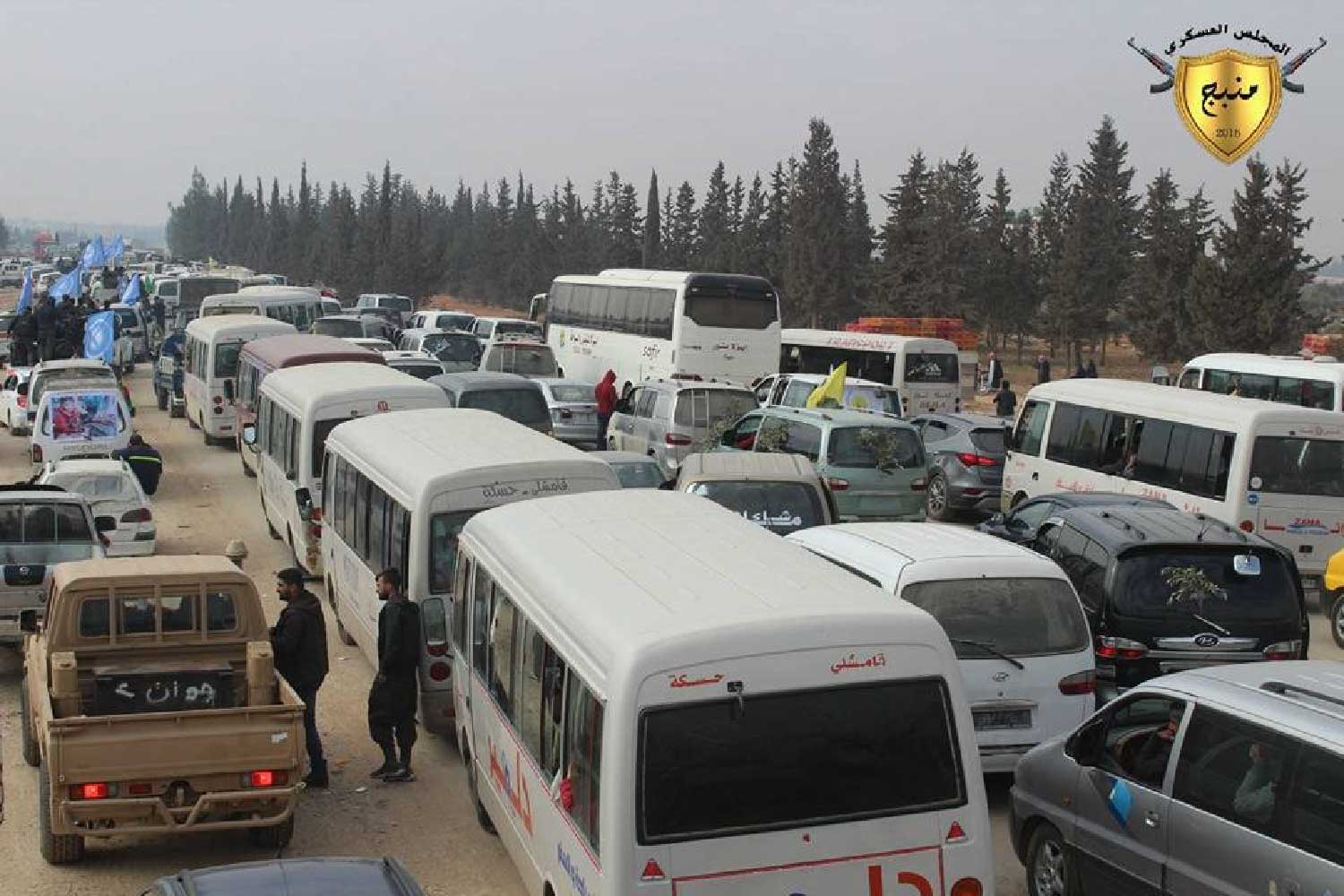
2. Syrian regime and pro-Iran forces, as well as US-backed forces, are reportedly amassing troops and fortifying their positions in the Euphrates region. According to both pro-opposition and pro-government sources, the two sides are preparing for possible skirmishes in the area.
3. February 10: Israeli airstrikes destroyed nearly half of the Syrian regime’s air defenses, according to the Israeli newspaper Haaretz, which cited “senior Israeli Defense Forces officials” in the article on February 14. An Israeli F-16 was shot down during the airstrike; however, Israeli officials considered the operation a success.
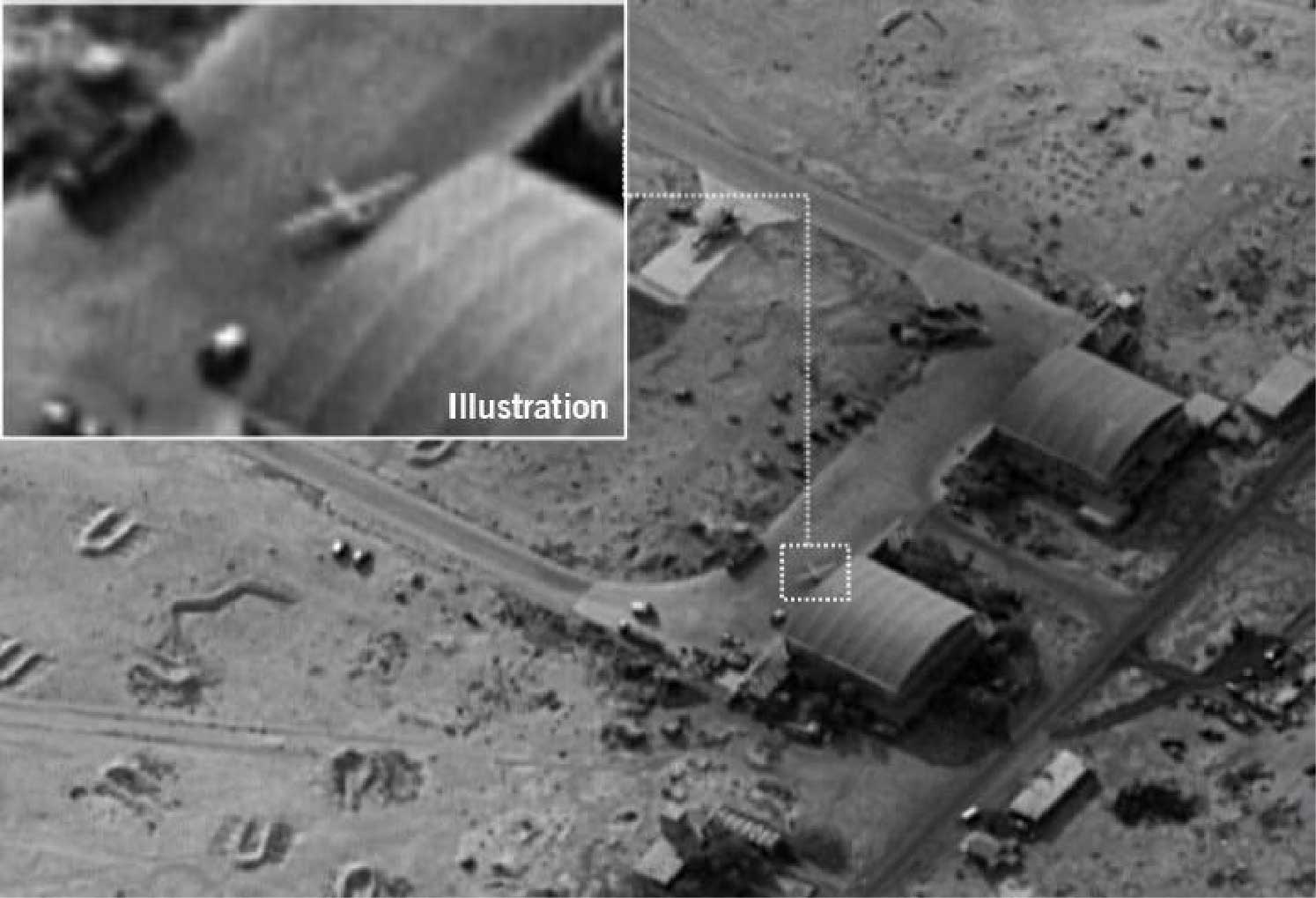
February 12: AnIsraeli military official said that an Iranian drone shot down 10 February 2018, ago was based on a US stealth RQ-170 UAV, which was captured by Iran in 2011. Iran started production of this drone in 2016.
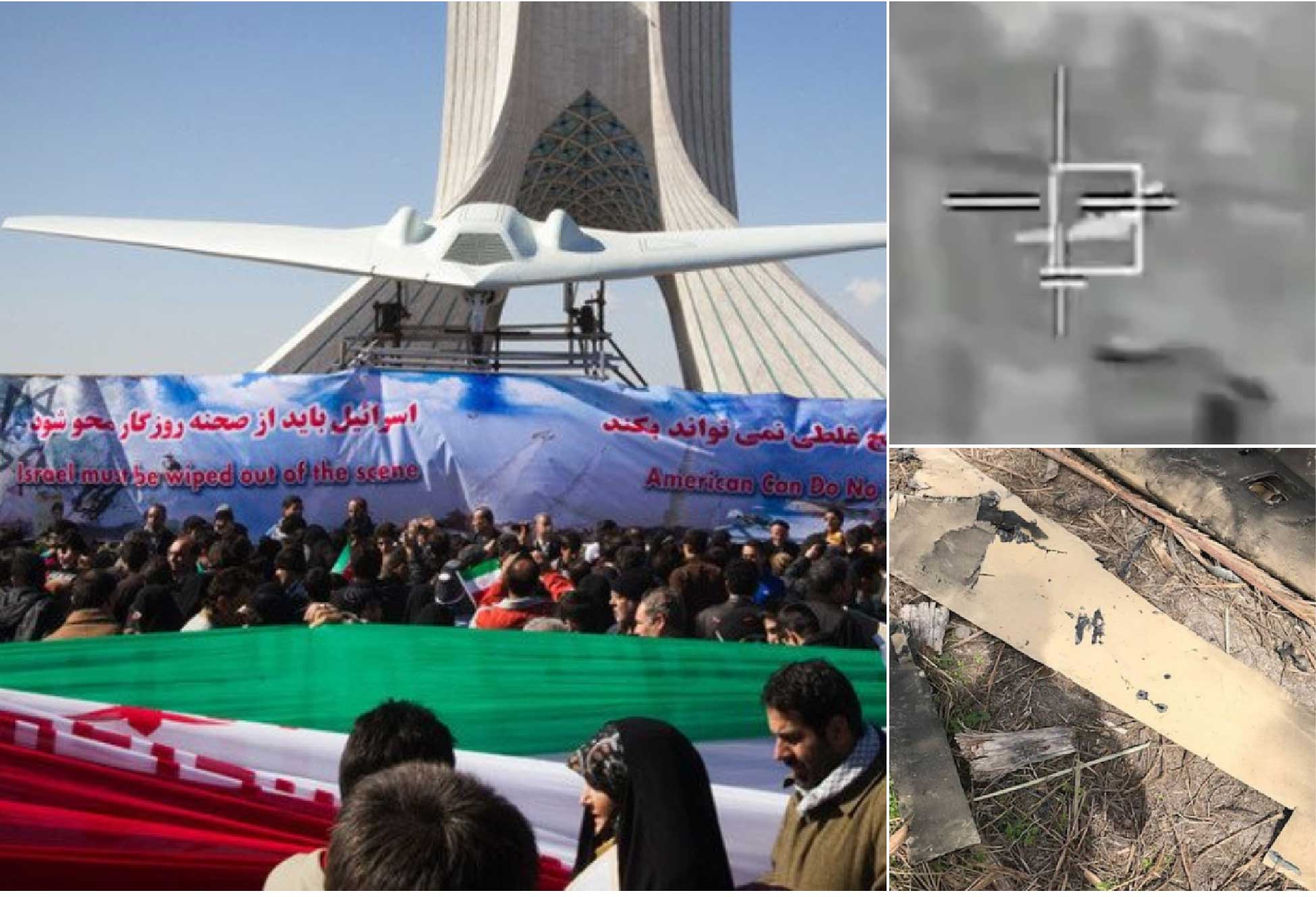
Map of Control and Influence: "Syria 15 December 2017"
Damascus
- December 7, inside sources, reported that Hay’at Tahrir Al-Sham-affiliated combatants who were not pre-war inhabitants of Eastern Ghouta will be evacuated to Idleb governorate in the coming weeks. This development is pursuant to an agreement reached between armed opposition groups in the area and the Government of Russia.
- December 8, media sources indicated that representatives from the Syrian Regime have reached an agreement on the terms of a reconciliation agreement with the Negotiation Committee of Raheiba, in Raheiba subdistrict, in the eastern Qalamoun region of Rural Damascus governorate.
Important Note The most important terms reportedly included: implementation of a ceasefire in exchange for the entry of basic humanitarian aid and water; the establishment of a Syrian Regime local governance structure and the dissolution of all local opposition administrative structures.
- December 10, media sources claimed several ISIS commanders have evacuated Yarmouk camp and Hajar Aswad over the past month. Unconfirmed reports indicate they have relocated to ISIS-affiliated Jaish Khaled Ibn Al-Waleed-controlled areas of southern Syria.
- December 12, Clashes have continued in the vicinity of Bait Jan, in Bait Jan subdistrict in Western Ghouta, between opposition forces and Syrian Regime backed by Pro-Iran Militias. At present, advances by both parties remain tentative.
Important Note The humanitarian situation in Eastern Ghouta continues to deteriorate. Bread pack prices reached 1,900 SP, 1kg of rice is currently at 4,000 SP, and most day-to-day essentials are scarce in public markets.
Southern Front
- December 7, Hezbollah and Pro-Iran militias have reportedly deployed reinforcements to Jidya and Deir Eladas, located west and north of As-Sanamayn in Northern Daraa.
Al Hasakeh
- December 8, media reports claimed the U.S.-led international coalition sent a sizeable weapons shipment to the Syrian Democratic Forces (SDF). This shipment reportedly entered Al-Hasakeh governorate through the Syria—Iraq Fishkabour border crossing.
Important Note Last weapons shipment to enter the area was reportedly delivered on November 23, on November 24, President Trump reportedly informed President Erdogan that the U.S. intended to end its support to the SDF in Syria.
- December 12, humanitarian conditions in Shaddadah camp have continued to deteriorate. Of note, Shadadah camp is located between Al-Hasakeh city and Shadadah town. Reports indicate the total number of IDPs in the camp is now at least 6000 individuals, 90% of which were displaced from Deir Ez-Zor governorate on account of ongoing military operations.
Important Note The camp’s inhabitants reportedly suffer from a lack of basic food items, especially bread, as well as limited WASH and medical support. Unconfirmed reports indicate that around 150-200 people have been evacuated to Damascus each week since the start of December for medical treatment. Generally speaking, IDPs in Al-Hasakeh governorate continue to experience difficult conditions, especially given the limited capacity of existing camps to host all those displaced from Deir Ez-Zor governorate as well as worsening seasonal weather conditions.
Aleppo
- December 6, inside sources, indicated that airstrikes targeted Al-Azzan mountain, located 19 km south of Aleppo in the vicinity of Azzan town, Jebel Saman subdistrict. According to these sources, the attacks were launched by the Government of Israel and targeted an Iranian backed militia (Badr Organization) military base established in 2015.
Important Note December 1 and 4, Israeli airstrikes also targeted Government of Syria-controlled munitions storage facilities located between Kisweh and Sahnaya, south of Damascus city, and in Jamraya, in Qudsiya subdistrict.
- December 9, the Syrian Interim Government issued a statement claiming to have held a meeting with 37 opposition forces representatives in northern rural Aleppo, which concluded with an agreement to establish a ‘National Army’.
Idlib
- December 10, the Salvation Government issued a statement in which it announced the Syrian Interim Government would have 72 hours to evacuate all of its offices in Idlib governorate.
Important Note this comes after a statement on December 9, in which the Syrian Interim Government’s Head of Public Relations was cited as having described the Salvation Government as a terrorist organization.
Battle of Deir ez-Zor & Raqqah September & October 2017
- October 9, Syrian Democratic Forces reportedly continued their advance in the eastern Deir-Ez-Zor governorate, capturing Mweileh town in Sur subdistrict, located north of Sur city.
- October 10, Syrian Regime offensive is largely dependent on Russian aerial coverage; the Russian Foreign Ministry announced that 150 daily Russian airstrikes had targeted ISIS bases in Mayadin city.
- October 15, SDF spokesperson announced that all willing combatants have evacuated the city; however, the likely destination of potential ISIS-affiliated evacuees is currently unknown. Furthermore, the SDF-led ‘Wrath of Euphrates’ operation against ISIS has led to SDF control over most neighborhoods in Ar-Raqqa city amidst heavy aerial support by the U.S.-led coalition, resulting in a high rate of civilian displacement.
- October 15, Syrian Regime forces and Allied Militias, supported by Russian aerial and ground forces, continued their advance south of Deir-Ez-Zor city, Syrian Regime forces, advanced into Al Mayadin city, Al Mayadin subdistrict, located 43.8 km south of Deir-Ez-Zor city.
- October 17, About 400 Islamic State (ISIS) members, including foreign fighters, have in recent weeks surrendered to U.S. backed forces in ISIS former Syrian stronghold Raqqa; inside source confirmed that the ISIS Syrian fighters were transferred to "Ayn Issa" Camp, while the foreign fighters were transferred to "Suluk" Military headquarter.
- October 18, Syrian Democratic Forces reportedly captured the several villages from ISIS, 7 KM eastern side of Deir-Ez-Zor City.
Important Note: As of the end of September, nearly 708,000 individuals are reported to still remain in ISIS-held communities in Deir-Ez-Zor governorate. This includes approximately 120,000 individuals in ISIS-held northern Deir-Ez-Zor governorate between Tabni, Tabni subdistrict, Deir-Ez-Zor City and the Euphrates River; 68,000 individuals in the ISIS-controlled western Deir-Ez-Zor governorate from Khasham in Khasham subdistrict to Markada across Khabour River; 120,000 in southern Deir-Ez-Zor governorate from Hajin to Abukamal; and nearly 400,000 individuals in the central Deir-Ez-Zor governorate.
Turkey Eyeing Further Expansion in Northern Syria, Say Rebels
Turkey said last week that its campaign in Idlib was nearly complete, but recent talk over further expansion in Aleppo’s countryside signal that its operations in northern Syria may be far from over.
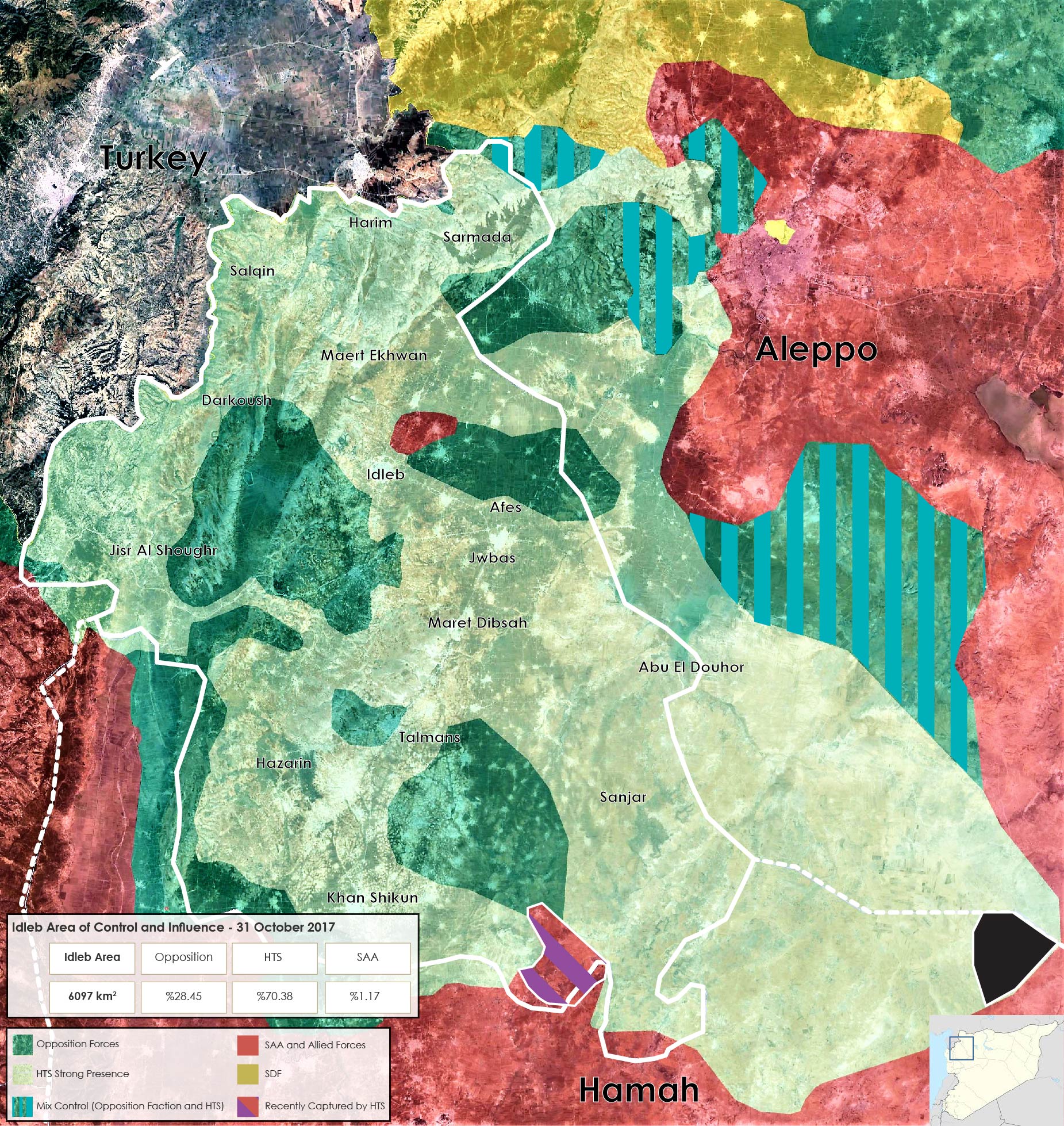
A map of control in northeast Syria, showing front lines between the opposition, Kurdish forces and the Syrian government. By Omran Center -Nawar Oliver
After establishing a presence in northern Idlib and western Aleppo over the past month, Turkish troops and Turkey-backed rebels are now looking to expand their area of control along the border by moving further east into Aleppo’s countryside, a rebel spokesman told Syria Deeply.
Although Turkish president Recep Tayyip Erdogan said last week that his country’s operation in northeast Syria was nearly complete, Ankara recently dispatched reconnaissance teams to new areas, and some rebels reported being in talks to hand over their positions to Turkish forces, according to a military spokesman for the Syrian opposition faction Nour al-Din al-Zenki.
Ankara began its cross-border operation with the purported aim of enforcing a de-escalation zone in Idlib, which was agreed upon by Russia, Turkey and Iran in the Kazakh capital of Astana in September. So far, its troops have deployed only in areas separating the opposition and Kurdish forces. The Turks have not moved into front-line areas between rebels and the Syrian regime.
According to Abdul Salam Abdul Razzaq, Turkey is looking to replicate this strategy further east. He told Syria Deeply that Nour al-Din al-Zenki had already agreed to hand over its positions in rural Aleppo to Turkish forces.
He added that although it had not been determined exactly where the Turkish troops would be stationed, Ankara was looking to establish observation posts in the Sheikh Aqil Mountains, located in the al-Bab district, which Turkey liberated from the so-called Islamic State last year.
Ankara has also dispatched reconnaissance teams to Nour al-Din al-Zenki positions in the adjacent districts of al-Tamoura and Anadan, northwest of Aleppo city, but had not yet taken them over, Abdul Razzaq said. The military spokesman also cautioned the agreement could fall through if Aleppo residents objected to the Turkish presence.
It was not immediately clear what Nour al-Din al-Zenki stands to gain from the agreement. “Turkey’s deployment in Idlib is part of the de-escalation zone agreement reached in Astana, and Zenki is a signatory to this deal,” Abdul Razzaq simply said.
When asked about the significance of these positions, Abdul Razzaq said they were a clear indicator of Turkey’s attempts to encircle the Kurdish-held region of Afrin. “If the Turkish army’s priority was ensuring de-escalation, then Ankara should have first deployed on the front lines between the opposition and the regime, instead of on the front lines with Kurdish separationists,” he said. “Everyone knows that Kurdish forces are Ankara’s greatest concern when it comes to its southern borders.”
Speaking to his ruling Justice and Development Party (AKP) last month, Erdogan said that although Turkey’s Idlib operation was nearly complete, “the Afrin issue is ahead of us … We can come suddenly at night. We can suddenly hit at night.”
Turkish Deployment in Northeast Syria
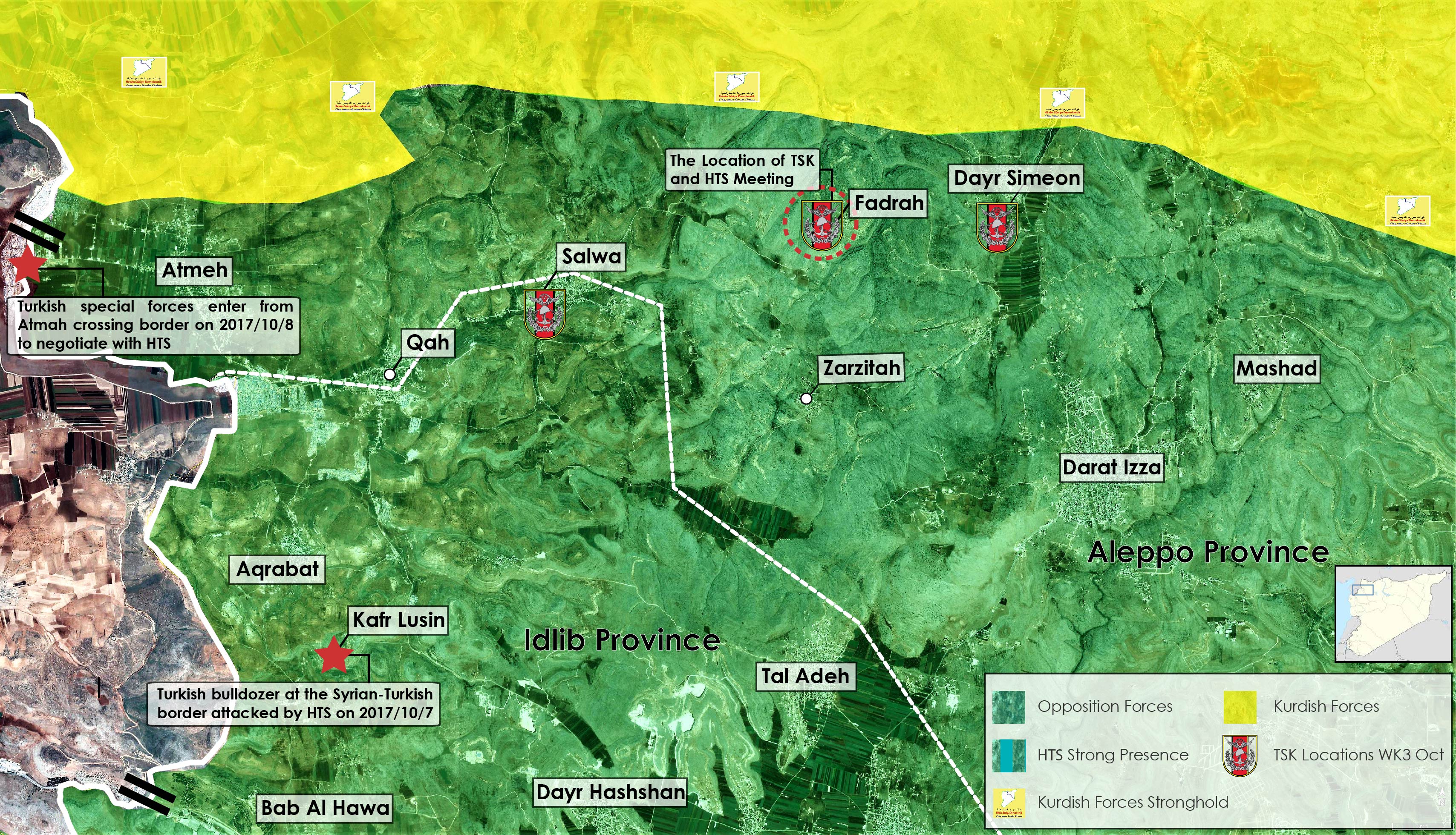
A map showing Turkish positions in Idlib province as well as front lines between Turkish forces and Kurdish groups based in the adjacent Kurdish-held region of Afrin. By Omran Center-(Nawar Oliver)
Turkey’s planned expansion comes after weeks of operations in northern Idlib and western Aleppo that have resulted in the establishment of at least three Turkish posts in areas adjacent to the Kurdish-held region of Afrin.
Omar Khattab, a military spokesman for the Turkey-backed Ahrar al-Sham rebel group, said that Turkish deployment in Idlib has been carried out in coordination with the al-Qaida-linked Hay’at Tahrir al-Sham alliance, which withdrew from areas of Turkish operations.
Charles Lister, a senior fellow at the Middle East Institute, told Syria Deeply last month that HTS agreed to surrender positions to the Turkish army to prevent a costly all-out war with Turkish troops.
Ahrar al-Sham’s military spokesman said he was not authorized to disclose the exact coordinates of these positions, but Ahmad Saoud of the Free Idlib Army’s Division 13 Brigade said Turkey has built a launching-pad base in the Sheikh Barakat Mountain in Dar Simeon.
The position is only a few miles from Kurdish militia forces based in Jendaris and is located roughly 7 miles (12km) from the Turkish borders. A video posted by the activist-run Smart News Agency on October 24 shows Turkish bulldozers and armored vehicles operating in the area.
Turkish troops have also dispatched forces to the village of Salwa, which is near the border of Afrin, according to Abdul Razzaq. The activist-run Thiqa News Agency has posted a video on social media networks showing Turkish armored vehicles moving in the area.
Rebel sources said that Turkish troops have also purportedly deployed in the village of Fadrah near the Sheikh Barakat Mountain.
Turkey’s operations in northern Syria are laying the groundwork for the establishment of a border buffer zone that stretches from the Atmeh border crossing as far east as Jarablus. Following the Euphrates Shield Operation last year, Turkish-backed forces gained control over the Jarablus, Azaz and al-Bab in Aleppo’s countryside. Current expansion in Anadan, Tammoura and Sheikh Aqil will help Turkey connect its positions in Northern Idlib with Euphrates Shield territory in Aleppo’s countryside.
In another indication of Ankara seeking to entrench itself along this stretch of the border, Turkey’s state-run Anadolu news agency reported last week that Turkey has reportedly trained some 5,632 Syrian volunteers to work as police officers in the area. Some volunteers have already been dispatched to the areas of al-Bab, Azaz and Jarablus, Anadolu said.
Strait Talk: Panel discussion with Yaser Tabbara and Sinan Hatahet on the latest in Raqqa
Mr. Yaser Tabbara board member of the Omran Center for Strategic Studies. And by Sinan Hatahet answered several important question in regard of Raqqah operation and what is the current condition after U.S. and their ground Allies "PYD" took control of the city from "ISIS". Mr. Yaser talked about the current relationship between the U.S. and "PYD" specially after raising "Ocalan" picture in the city by some "PYD" fighters. Mr. Yaser also talked about the Syrian Regime reaction on "PYD" taking control of the City, and what are the possible scenarios for the Regime in regard of Raqqah

